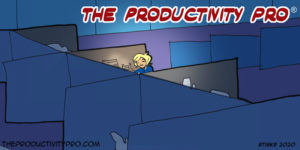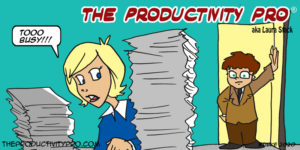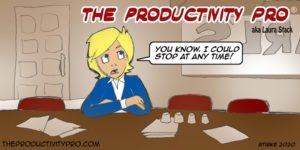
by Laura Stack, MBA, CSP, CPAE “Give me six hours to chop down a tree, and I will spend the first four sharpening the axe.” —Abraham Lincoln, 16th President of the United States. While a journey of a thousand miles really does begin with a single step (whether you're hiking, driving, or flying), what you do before taking that step is crucial. There are always at least a few things you'll need to prepare before you head out. For example: you wouldn't go camping without packing a tent, sleeping bags, food, and a lighter, would you? So why go off half-cocked on a work project? When starting a new project or task, few things are as crucial as the "front-end" work. Often, this is the sort of thing where you can adapt existing methodologies or create new ones before moving forward. … [Read more...]











